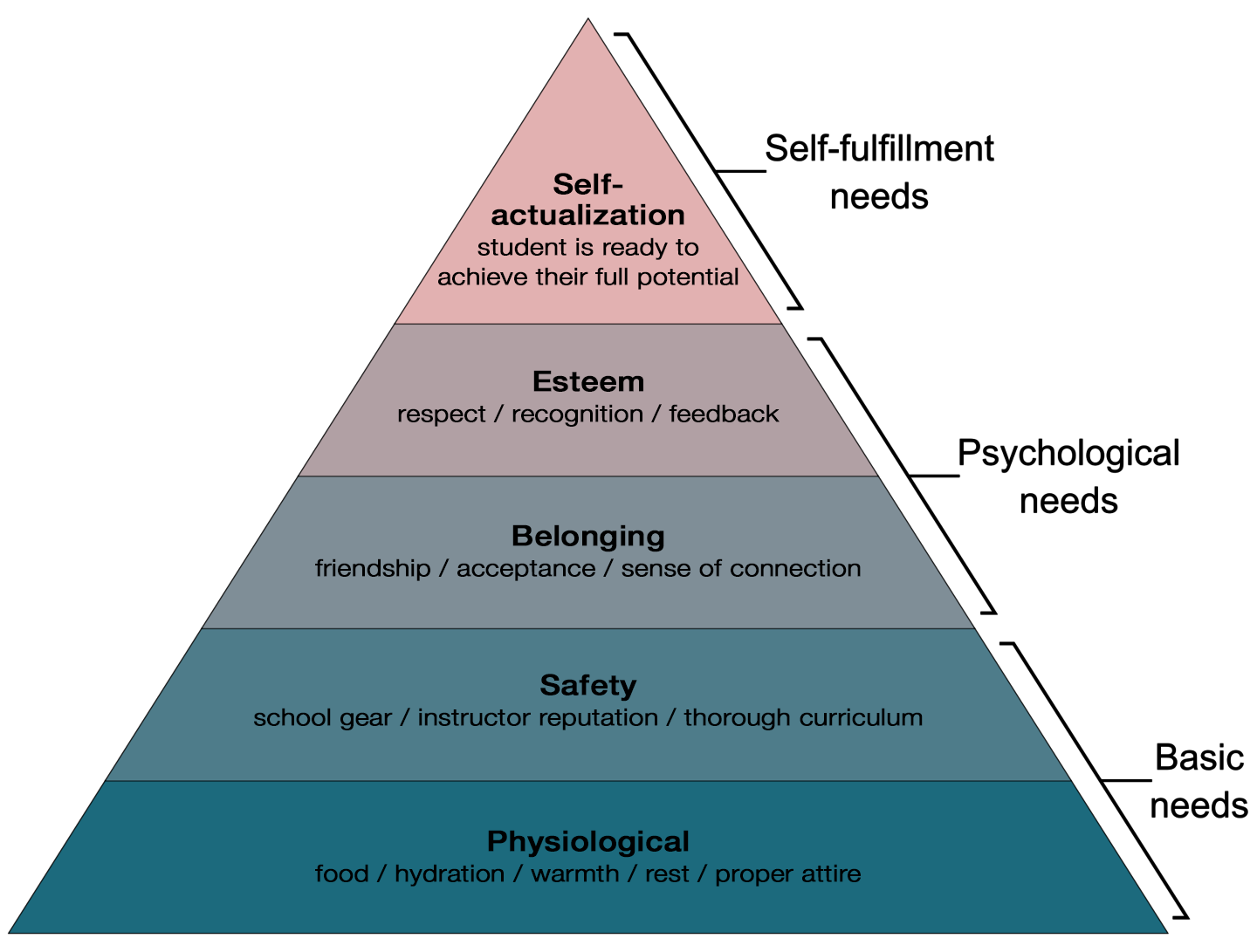Understanding human needs
Maslow’s Hierarchy of Needs
This popular theory proposes that individuals’ basic needs must be satisfied before their higher needs become motivating.
Maslow’s Hierarchy of Needs can serve as an important reminder to instructors to support the various needs of their students.
Every step an instructor takes toward contributing to those fundamental needs will enhance their students’ capacity for learning.

Physiological
Physiological Needs can include food, water, sleep, and warmth.
These needs are the most fundamental. If not met, students will struggle to learn.
What can you do?
- Make sure your students are hydrated.
- Schedule lunch and bathroom breaks.
- Encourage students to eat nutritious food during training.
- If a student needs rest, reschedule your training session if possible.
- Ensure your students have the proper attire for the weather.
Safety
Safety Needs include how safe your students feel while training with you.
If a student doesn’t feel safe, they will struggle to learn.
What can you do?
- Maintain your school gear to keep it in top shape.
- Explain why they are learning what they are learning. Students feel safer when they understand what’s going on.
- Create a learning culture of trust and safety.
Belonging
Belonging Needs include your students’ desire for strong peer relationships & acceptance. Students who don’t feel a sense of belonging may struggle to learn.
What can you do?
- Spend time getting to know your students. Ask about their hobbies and interests.
- Allow time for students to get to know each other. Eat together or sit around the campfire and talk after training.
- Create a FB group, group text, or virtual space where your students can interact and share.
Esteem
Esteem Needs include your students’ ability to feel a sense of genuine achievement. Students that feel a sense of accomplishment are more eager to keep learning.
What can you do?
- Provide students with feedback and compliments as they learn.
- Use a skills checklist or other visual tools to help students see their progress.
- Allow your students to affirm their peers with positive feedback.
Self-actualization
Self-actualization is the stage where your student achieves their full potential and begins to utilize their strengths to learn and improve.
What can you do?
Ensure that you genuinely try to know each student and understand where they are on Maslow’s Hierarchy. In doing so, you can help your students to progress through the hierarchy.
